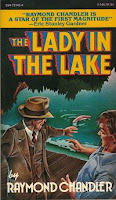Members of the Xorg Collective and invited guests were out and about yesterday for a works outing to The Royal Albert Hall for a performance of Puccini's opera Madam Butterfly; trip arranged by our eminent social secretary Fabmary. Most of us are pretty much unfamiliar with the piece and opera generally so it was a novel experience all round what with one thing and another.
The plot is fairly straightforward, concerning the duplicitous and exploitative nature of the male lead, American naval officer Lieutenant Pinkerton, who marries and abandons the fifteen-year old Japanese Madam Butterfly, only to return and take away their child to be brought up by his American wife. Meanwhile, Madam Butterfly has converted to Christianity because of her love for Pinkerton and as a result is shunned by her family and is all alone in the world apart from her faithful handmaiden. The result of this treacherous, bigamous and nefarious behaviour is inevitably the suicide of Madam Butterfly. Yep. It all ends in tears with the betrayed female lead tragically dead, which is quite common in opera, I believe. Any road up the libretto was in English, which was a bonus for us English-speaking opera novices. The story would seem to be an allegory for American imperialism, a big clue being that Pinkerton's Christian names are Benjamin Franklin and every time America is mentioned the theme for 'Stars and Stripes' is played by the orchestra.
Puccini's music is quite magnificent with some spiffing tunes plus an extended orchestral interlude between Acts 2 and 3, during which Butterfly stands motionless whilst waiting for Pinkerton. Being unfamiliar with the piece, I can't name the particular tunes but there is a recurring theme which belongs to Madam Butterfly which goes daah-dah-dah-dah-dah-dahdaaaah-dah-daaah that I liked. I guess I'll have to seek out a reasonably priced recording and get to know it better.

The performance itself was top-notch. My only complaint concerns the production. I guess the director figured 'Aha! The Albert Hall is round so we'll do it in-the-round!' Fair enough, but he was forgetting that although the theatre is round it was designed with the stage at one end so that everyone in the room would be able to see it. But with the stage in the middle of the hall and given the steep nature of the seating, part of the stage is obscured from part of the audience i.e. the people in the cheap seats in the upper circle. So we missed a fair bit of the action, which took place in the lower right quadrant of the round (see picture). So I'm deducting two points for that. I'm also deducting a point because the sound design could have been better and I wonder whether they could not have taken a chance and done without microphones altogether given that yer average opera singer can generally belt it out. Perhaps the acoustics of the hall would only allow that if the opera was staged conventionally. Smart venue though, with civilised toilets and helpful smiley staff.











